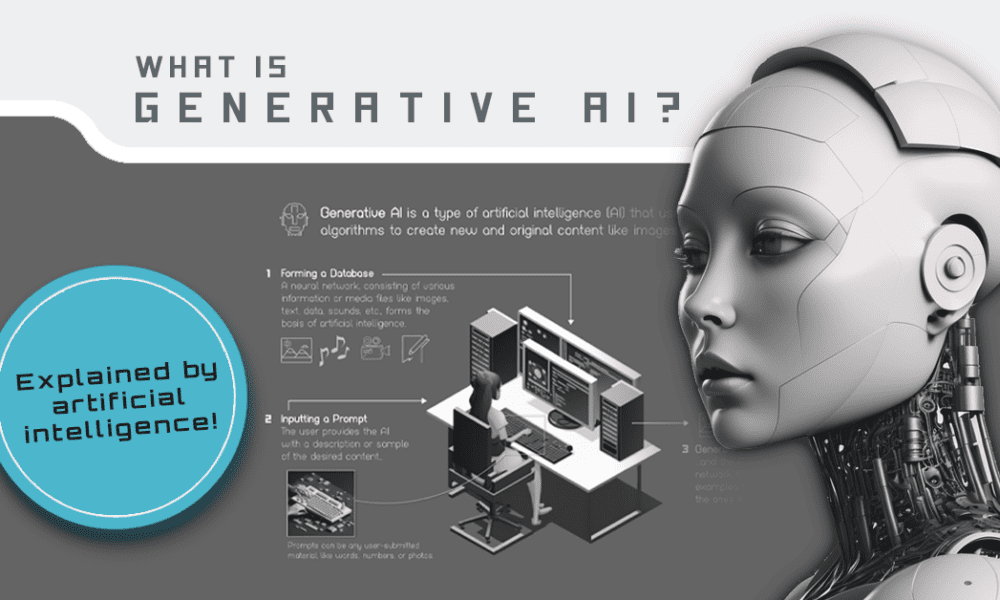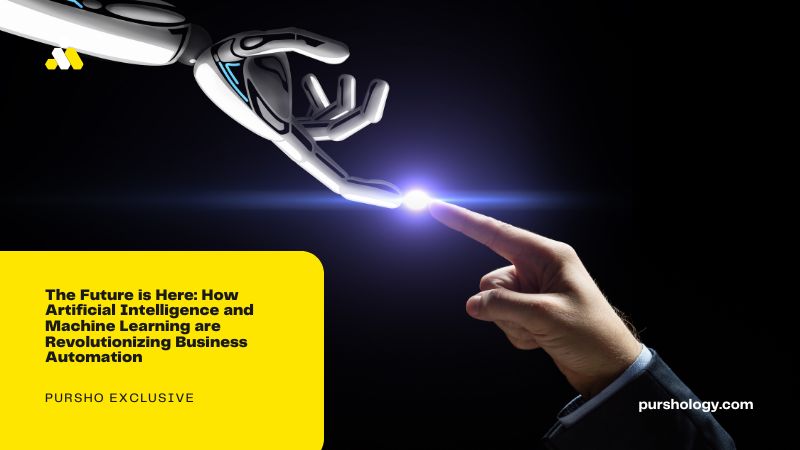Unlocking the power of tomorrow: Dive into the groundbreaking AI and machine learning advancements transforming business automation.
 Image courtesy of ahmed alraeesi via Pexels
Image courtesy of ahmed alraeesi via Pexels
Table of Contents
In today’s fast-paced and technologically-driven world, businesses are constantly seeking innovative solutions to streamline their operations and stay ahead of the competition. With the advent of artificial intelligence (AI) and machine learning (ML), the future of business automation is becoming a reality. These groundbreaking technologies have the potential to revolutionize various aspects of business operations, from customer service to supply chain management. In this blog post, we will explore how AI and ML are predicted to transform the business landscape and examine the expected adoption rates among companies.
The Growing Demand for Automation
As businesses continue to face increasing complexity and large volumes of data, there is a growing demand for automation. Manual processes are often time-consuming, error-prone, and inefficient, which can hinder overall productivity. AI and ML offer promising solutions to address these challenges and optimize operations.
For example, companies in industries such as manufacturing, logistics, and healthcare have fragmented operations that can benefit from AI and ML integration. By automating tasks such as inventory management, predictive maintenance, and healthcare data analysis, businesses can improve efficiency, reduce costs, and enhance decision-making processes.
The Role of Artificial Intelligence
Artificial intelligence refers to the creation of smart machines that can simulate human intelligence and perform tasks without explicit programming. Machine learning, a subset of AI, enables computers to learn and adapt on their own using algorithms and statistical models.
AI has the potential to streamline various business operations. For instance, in customer service, AI-powered chatbots can provide quick and accurate responses to customer queries, improving customer satisfaction and reducing the workload on human support agents.
In supply chain management, AI algorithms can analyze historical data to optimize inventory levels, predict demand patterns, and enhance logistics planning. This enables businesses to reduce stockouts, minimize excess inventory, and improve overall supply chain efficiency.
Despite the potential benefits, concerns about job displacement have emerged in relation to the implementation of AI. However, while AI may automate certain tasks, it also creates new opportunities and the need for reskilling and upskilling of employees. Companies can focus on leveraging AI to augment human capabilities, enabling employees to focus on more strategic and creative tasks.
Predicted Adoption Rates of AI and ML
The adoption rates of AI and ML in businesses are steadily increasing. According to a recent report by Gartner, around 37% of organizations have implemented AI in some form, representing a 270% increase in the past four years.
 Image courtesy of www.visualcapitalist.com via Google Images
Image courtesy of www.visualcapitalist.com via Google Images
Industry experts predict even higher future adoption rates. By 2022, Gartner estimates that 72% of organizations will be utilizing AI and ML technologies to improve business operations and gain a competitive edge.
Several factors influence the adoption rates, including cost, technical challenges, and the regulatory environment. While larger organizations may have the resources to invest in AI and ML technologies, small and medium-sized enterprises may face financial constraints. Additionally, technical challenges such as data quality, integration complexities, and inadequate infrastructure can hinder adoption.
Challenges and Considerations for Implementation
The implementation of AI and ML technologies in businesses also comes with its own set of challenges. One of the main concerns is privacy and ethical considerations. As businesses collect and analyze vast amounts of data, it is essential to ensure the responsible and secure use of this information.
Moreover, biased algorithms can inadvertently perpetuate societal biases and discrimination. Businesses must actively address these concerns by prioritizing fairness and transparency in their AI and ML systems.
Despite the challenges, numerous success stories demonstrate the potential benefits of AI and ML integration in businesses. For instance, companies like Amazon and Netflix have successfully implemented AI algorithms to personalize product recommendations and enhance the customer experience.
Conclusion
The future of business automation is indeed here, as AI and ML continue to revolutionize various business operations. While adoption rates may vary, it is evident that these technologies offer immense potential for driving efficiency, cost reduction, and competitive advantage.
Businesses must stay informed about the latest advancements, experiment with AI and ML solutions, and adapt alongside the changing landscape. With careful consideration of ethical and privacy concerns, AI and ML can transform businesses, enabling them to thrive in the increasingly digital world.




